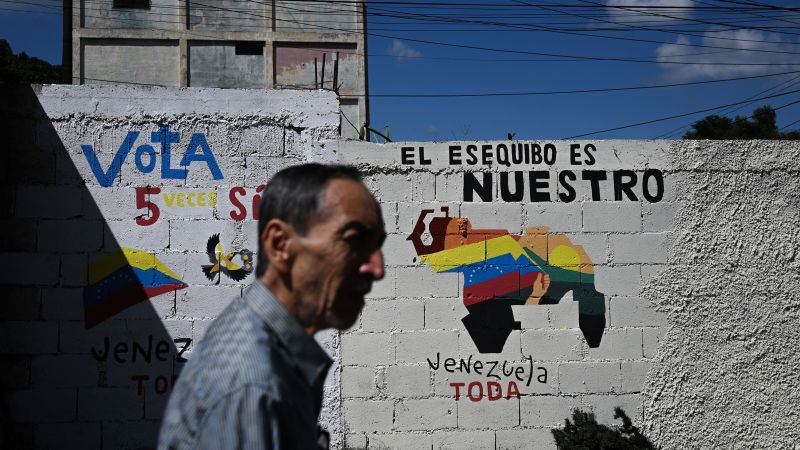Venezuelans will finally decide the future of a disputed land on Sunday in a historic referendum that could result in the creation of a new state. This disputed area lies on the border between Venezuela and Guyana and has caused tensions between the two South American nations. The region in question, known as the Essequibo, is a sparsely populated, oil-rich river region that covers about two-thirds of Guyana’s territory and is roughly the size of Florida.
For Venezuela, this referendum is a matter of reclaiming historic rights to the region and providing its people with Venezuelan citizenship. It has dismissed an 1899 ruling by international arbitrators which set the boundaries when Guyana was still a British colony. Venezuela has argued that the region belonged within its borders during the Spanish colonial period. The recent discovery of significant offshore oil fields has only heightened the stakes of the dispute, making it a major point of contention.
Despite the expected outcome of the vote favoring the government, the practical impact of creating a Venezuelan state within the Essequibo is minimal. However, the escalating rhetoric has resulted in troop movements in the region and saber-rattling in both countries, with Guyanese leaders drawing comparisons to the Russian invasion of Ukraine.
The International Court of Justice has ruled that Venezuela must refrain from taking any actions that would modify the disputed territory, after Guyana tried to halt the vote by arguing that annexation would be unlawful. However, Venezuela maintains that the referendum will take place regardless of the court’s decision, showing its stance on the conflict.
The dispute dates back to an 1899 ruling by an international tribunal in Paris that granted British Guiana, now known as Guyana, most of the land between the Orinoco and Essequibo rivers. Venezuela accepted the ruling until 1962, when the former accused the tribunal of fraud. The dispute has since become a major concern, with both countries highlighting the possible military conflicts that could arise from the situation.
These tensions escalated after the 2015 discovery of oil off the coast of the disputed region by ExxonMobil. Guyana, a sparsely populated country, has seen rapid transformation since the discovery, with over $1 billion in annual government oil revenue fueling massive infrastructure projects. Venezuela has disputed Guyana’s right to grant concessions for drilling in the reserves, alleging that the country is a tool of ExxonMobil.
Overall, this situation poses a significant political challenge for President Nicolas Maduro. Amid a challenging re-election campaign, he may seek to gain political advantage from the referendum regardless of the potential implications. This has raised concerns about the potential for armed conflict between Venezuela and Guyana, with escalating rhetoric and potential troop movements in the region, reflecting a limited willingness by either side to back down from the territorial dispute.


